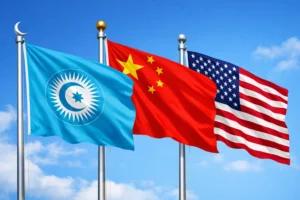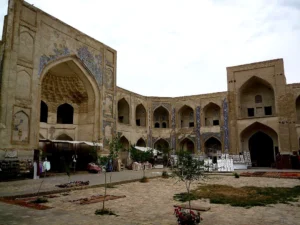Pakistan-Iran Rising Tension and its Implications

Iran and Pakistan striking each other’s territory
The two bordering countries Pakistan and Iran were striking each other’s territory on 17th and 18th January, calming that both attacked the safe havens of terrorists. The two countries share a volatile border, stretching about 900 kilometers (560 miles), with Pakistan’s Balochistan province on one side and Iran’s Sistan province on the other. Iran claimed that they targeted the Sunni Militant Group known as Jaish Al Adl or Army of Justice. On the other hand, Pakistan carries out retaliatory strikes against militant hideouts in Iran. Pakistan Foreign office assured that the Pakistan operation based on credible intelligence with a codenamed “Marg Bar Sarmachar” (Death of Sarmchar).
What is Jaish al Adl and why Iran attacked them
Jaish Al Adl a Sunni Salafi Organization that operates mainly in South-Eastern Iran bordering Pakistan. It was formed around 2012-2013. This group primarily based on Baloch Liberals on both sides of the border. Its main objective is to gain independence from both Iran and Pakistan across the border. Their main agenda is to liberate particular region of Iranian-Sistan and Balochistan as an independent state. Iran claimed that this group recently targeting the Police and bordering forces of Iran. In December 2023, this group took the responsibility of an attack that killed around 11 Iranian Security personnel.
Implications for Pakistan and the Region amid Pak-Iran Escalation
Soon after the air strikes from both sides, the economic woes of Pakistan raises due to witnessing a sharp dip in Pakistan Stock Exchange. Amid the deteriorating relations between the two neighbors, PSX fell by 1,000 points. It put more pressure on the country’s struggling economy. The elections are scheduled for Feb 08, and the crippling financial situation of the country is a serious concern. The already yawning economy cannot afford a further setback due to rising escalations in its borders.
The region is already facing the turmoil because of Palestine- Israel conflict. Contemporary escalations will further fuel the tensions in the region. Turkey, Russia, and China promptly respond and tried to control the situation by calling the counterparts of both countries.
China plays a pivotal role to stop the further escalations because China has invested in both countries. China-Iran Strategic Partnership of 400-bn dollars deal has recently entered into its full implementation phase. Similarly, CPEC program is already in progress. In the light of these multilateral and bilateral deals, it is very important for the region to avoid further escalations.
Iran has already engaged in Red sea where Hautih’s – Yemen based group backed by Iran attacked US vessels a few days ago. UK, USA and Australia jointly provide security to US vessels and the war like scenario have been seen in the Red Sea. In the light of these tensions, Iran also cannot afford further escalation with Pakistan.
One of the most important aspect of the rising tensions is the deterioration of relationships between the two Muslims countries. One having Sunni majority and other having Shia majority sect. If the sectarian violence will start between the two countries than it, turns into proxies that only cause the blood shed of innocent people from both sides.
In the light of these serious implications, Pakistan and Iran must handle this situation with maturity and diplomatically. The major actors in the region like China, Turkey, and Russia can also play their role as mediator to stop the tensions. It is not only favorable for the neighbors but also necessary for the peace of the region.


